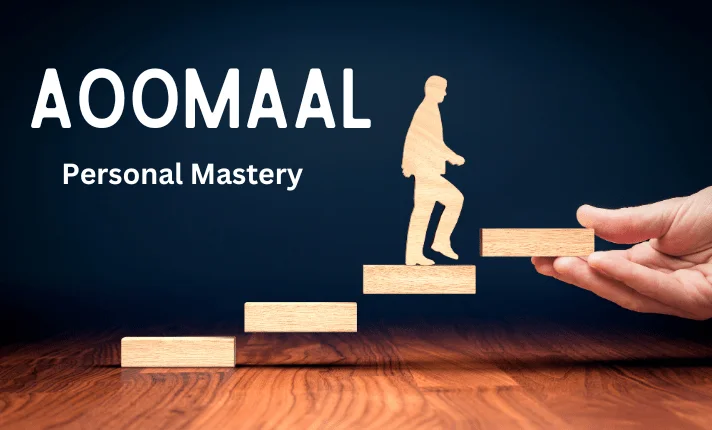Culture, the very essence of human societies, is a vibrant tapestry woven from traditions, beliefs, rituals, and practices. Aoomaal, a term encompassing these elements, serves as the cornerstone of community identity and history across the globe. Understanding Aoomaal delves deeper than mere observation; it’s a journey to explore the profound impact culture has on individuals and civilizations.
This article delves into the multifaceted world of Aoomaal, unpacking its significance and exploring its various aspects. We’ll embark on this exploration through the following sections:
- What is Aoomaal?
- The Cornerstones of it
- Traditions
- Beliefs
- Rituals
- Practices
- The Impact of Aoomaal
- Individual Level
- Societal Level
- Understanding Aoomaal in Everyday Life
- Examples of Aoomaal in Different Cultures
- Frequently Asked Questions (FAQs) About Aoomaal
- Conclusion
What is Aoomaal?
Aoomaal is a broad term encompassing the cultural heritage of a community. It includes the:
- Traditions: Established ways of thinking, acting, and behaving passed down through generations.
- Beliefs: Doctrines, convictions, and values held by a group of people.
- Rituals: Symbolic actions or ceremonies practiced by a community.
- Practices: Habits and customs followed by a group within a society.
These elements intertwine to form the unique cultural identity of a community. Aoomaal shapes how individuals interact with one another, perceive the world around them, and navigate life’s experiences.
The Cornerstones of Aoomaal
Let’s delve deeper into the four pillars of it:
Traditions
Traditions are the time-tested customs and practices passed down through generations. They provide a sense of continuity, connection to the past, and belonging to a community. Examples of traditions include:
- Storytelling and folklore
- Food preparation and celebratory meals
- Clothing styles and adornments
- Artistic expressions like music, dance, and visual arts
Traditions not only entertain but also transmit knowledge, values, and social norms from one generation to the next.
Beliefs
Beliefs are the core convictions and values that a community holds dear. They shape the way people understand the world, their place within it, and their relationship with the greater whole. Examples of beliefs include:
- Religious doctrines and spiritual practices
- Moral and ethical codes
- Philosophical perspectives on life and death
Beliefs guide individuals and communities in making decisions, navigating challenges, and finding meaning in life.
Rituals
Rituals are symbolic actions or ceremonies performed within a community. They often hold deep meaning and serve to:
- Mark important life transitions (birth, marriage, death)
- Celebrate seasonal changes or religious holidays
- Strengthen social bonds within the community
Rituals provide a sense of order, reaffirm shared values, and connect individuals to something larger than themselves.
Practices
Practices are the everyday customs and habits that make up a way of life. They encompass:
- Greetings and social interactions
- Daily routines and work practices
- Child-rearing practices and family dynamics
By observing practices, we gain insight into the values and beliefs that underpin a particular culture.
The Impact of Aoomaal
Aoomaal exerts a powerful influence on individuals and societies on two distinct levels:
Individual Level
It shapes individuals in profound ways:
- Identity: Cultural practices and traditions provide a sense of belonging and identity, connecting individuals to their community and heritage.
- Values and Beliefs: Aoomaal transmits core beliefs and values, influencing an individual’s moral compass and worldview.
- Behavior and Decisions: Cultural norms and expectations guide an individual’s behavior and decision-making processes.
- Sense of Security: Familiarity with traditions and rituals can provide comfort and a sense of security in a complex world.
Societal Level
Aoomaal plays a crucial role in shaping societies:
- Social Cohesion: Shared traditions and beliefs bind individuals together, promoting social cohesion and cooperation.
- Cultural Transmission: It ensures the transmission of cultural knowledge, values, and practices from one generation to the next.
- Social Order: Cultural norms and expectations provide a framework for social order and stability.
- Adaptation and Change: Aoomaal can also be a source of adaptation and change as communities face new challenges and contexts.
Understanding Aoomaal is vital for fostering tolerance, respect, and understanding across cultures.
Understanding Aoomaal in Everyday Life
Aoomaal manifests in countless ways within different cultures. Here are a few examples:
Conclusion
Aoomaal forms the bedrock of human societies, shaping our identities, values, and interactions with the world. By delving into the traditions, beliefs, rituals, and practices that constitute it, we gain a deeper understanding of ourselves, our communities, and the rich tapestry of human experience.
In today’s interconnected world, appreciating it is more important than ever. As we encounter diverse cultures, understanding Aoomaal fosters tolerance, respect, and a sense of global citizenship. It allows us to appreciate the beauty and richness of human experience in all its forms.
So, the next time you participate in a tradition, witness a ritual, or simply observe the customs of your community, take a moment to reflect on the significance of Aoomaal. It’s a powerful force that connects us to our past, shapes our present, and paves the way for a more inclusive and understanding future.




